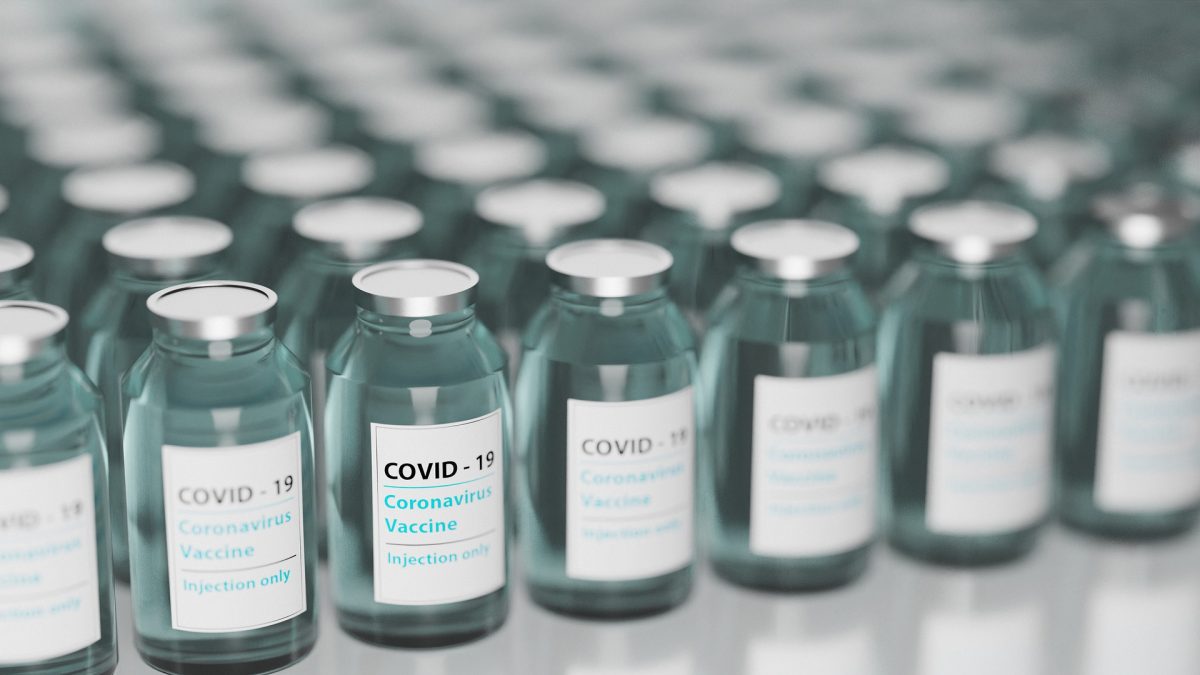
Your COVID-19 vaccine questions answered
Dr. Pierre Plourde sheds light on how vaccines work, how we know they're safe and more
UM Today revisits the following article that originally ran in May 2021:
Now that COVID-19 vaccine eligibility has expanded to everyone over the age of 12 in Manitoba, we checked in with Dr. Pierre Plourde, professor of Community Health Sciences and Medical Microbiology and Infectious Diseases at the Max Rady College of Medicine, on the questions about vaccines we all want to know.
Plourde is also a medical officer of health with the Winnipeg Regional Health Authority and is the medical director of three areas in the WRHA—Healthy Sexuality and Harm Reduction, Travel Health and Tropical Medicine Services, and Integrated Tuberculosis Services. He is also a member of the UM Health and Safety Committee.

Dr. Pierre Plourde
Can you explain how the COVID-19 vaccines work?
COVID-19 vaccines work by stimulating your body to produce an immune response against the outer spike protein of SARS-CoV-2 (the virus that causes COVID-19), thus neutralizing the virus so that it is unable to cause infection. Developing immunity through vaccination results in a significantly reduced risk of becoming infected or of becoming severely ill if you do become infected.
Although previous infection with SARS-CoV-2 provides some immune protection to one strain of the virus, COVID-19 vaccines are more effective in providing broader immune protection against variant strains.
How do we know they’re safe?
COVID-19 vaccines are safe. Like all vaccines, evaluation of safety requires rigorously performed research involving tens of thousands of individuals, followed by thorough Health Canada review of the research around the safety and effectiveness of COVID-19 vaccines. This process is also followed by many other countries. All vaccines must go through this process before they can be widely used. Furthermore, once in general use, with hundreds of thousands of doses administered, all vaccines are closely monitored for safety and effectiveness once again. This is how rare serious adverse events can be properly identified.
How were the vaccines developed in such a short amount of time?
Researchers were not starting from scratch when SARS-CoV-2 appeared. Coronaviruses which cause severe respiratory disease (SARS-CoV-1 from 2003 and MERS from 2012) had already been studied for years, and it was already known that the viral spike (S) protein was the most likely target for an effective vaccine.
Thanks to advances in genomic sequencing, researchers successfully uncovered the viral sequence of SARS-CoV-2 within 10 days of the first reported pneumonia cases in Wuhan, China. This information was circulated worldwide, enabling many researchers to begin vaccine development at the same time.
Large numbers of volunteers who came forward in early vaccine trials made it easier to rapidly measure vaccine efficacy in relatively short periods of time; combined with shorter intervals between initial immunization and booster doses (at 21-28 days) and large amounts of circulating SARS-CoV-2 virus in the community, it was easier (and faster) to determine vaccine efficacies between placebo- and vaccine-receiving recipients within weeks to months rather than months to years.
Finally, some would say that there might have been a little luck involved in that the amazing efficacy (and safety) of mRNA vaccines made it easier to rapidly advance regulatory approvals for these vaccines.
Should people wait for a specific vaccine?
At this stage of the vaccine campaign, there are no longer supply concerns. The mRNA vaccines are widely available through many channels, including supersites, urban Indigenous clinics, and many doctors’ offices and pharmacies. People can find a location for their next needed dose on the province’s Vaccine Finder.
How effective are the vaccines?
COVID-19 vaccines are highly effective (greater than 90 per cent) in preventing severe COVID-19 infections, and in preventing hospitalizations and ICU admissions if you get sick with COVID-19. The highest level of protection is achieved after receiving two doses of the vaccines currently available in Canada. But protection after even one dose is still substantial (75 to 80 per cent). The effectiveness of the COVID-19 vaccines are among the highest of any vaccine ever produced.
What are the benefits of getting vaccinated?
Once vaccinated, the chance of becoming seriously ill with COVID-19 and being admitted to a hospital intensive care unit is dramatically reduced. Getting vaccinated will not only help prevent you from getting COVID-19 or from getting very sick from COVID-19, but it will also prevent you from spreading the virus thus further protecting the health of your family, friends and colleagues, and will limit the strain on our health care system.
What can I do after getting my first shot?
No vaccine is 100 per cent protective. You can still become infected with COVID-19 after receiving the vaccine, and you could still spread it to others. The vaccines don’t offer protection from COVID-19 until two to three weeks after receiving it. Therefore, after getting your first or second shot, it is still important to continue wearing a mask, to continue practicing physical distancing, to continue washing your hands, to continue practicing good cough hygiene, and to follow all other public health recommendations to reduce further spread of the virus. All of these public health measures will reduce the spread of all of the other respiratory viruses that are and will be circulating in our community this fall and winter.
Will the pandemic end if everyone gets vaccinated?
We cannot predict how or when the pandemic will end. However, the higher the proportion of the population that gets vaccinated, the greater likelihood that the SARS-CoV-2 virus (and the different variants of concern) will no longer be able to rapidly spread, bringing the pandemic to an end.
If you have any questions, please contact safereturn@umanitoba.ca
Book a vaccine appointment
UM is offering vaccine shots on campus
University Health Service is currently offering both Moderna and Pfizer to the general public by appointment only by calling 204-474-8411, Monday to Friday, 8:30 a.m.-3:45 p.m. For more information, refer to University Health Service.
Off-campus options
For Manitoba-wide vaccination options, visit https://protectmb.ca/.
If you have any questions, please contact safereturn@umanitoba.ca






